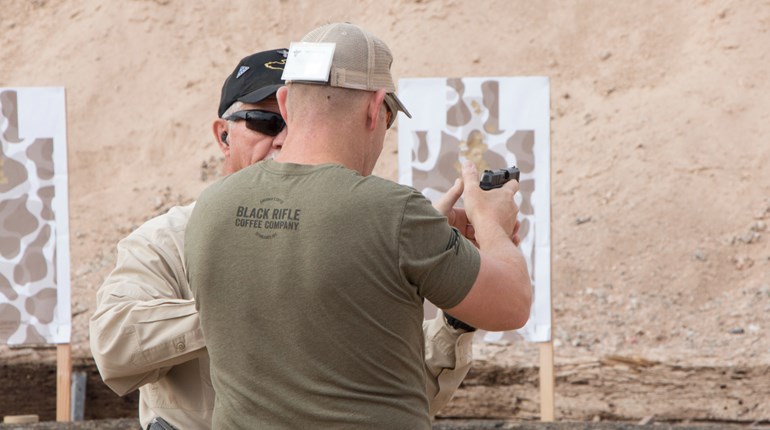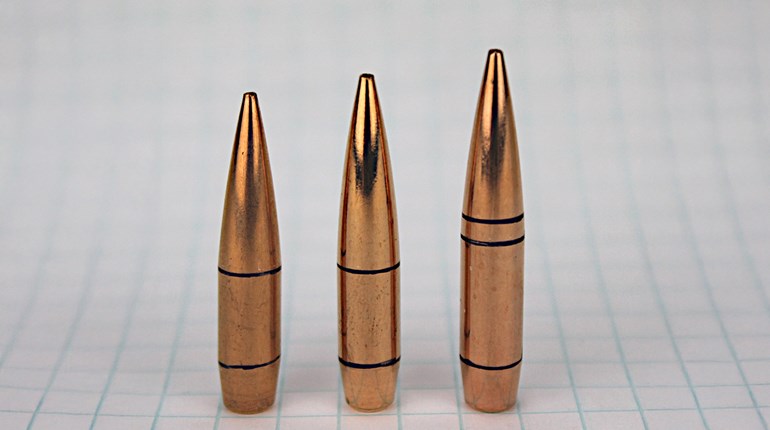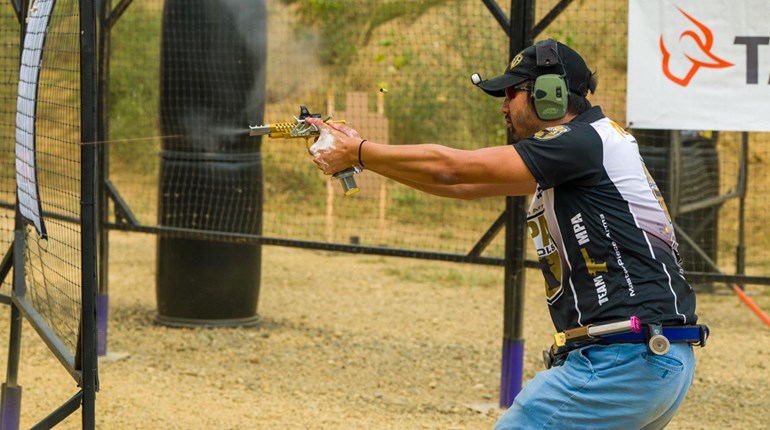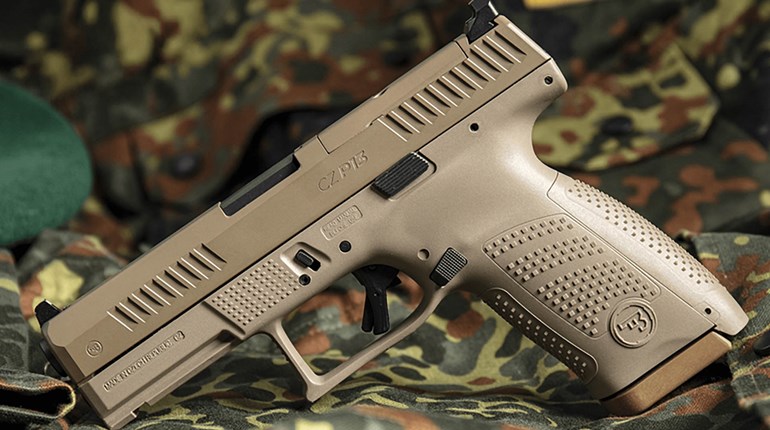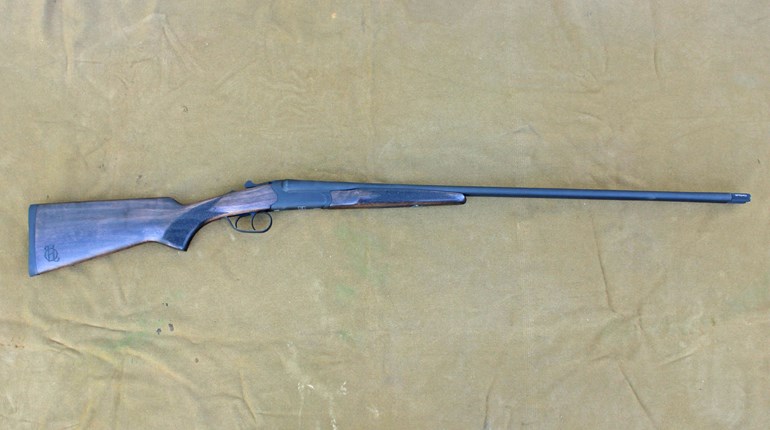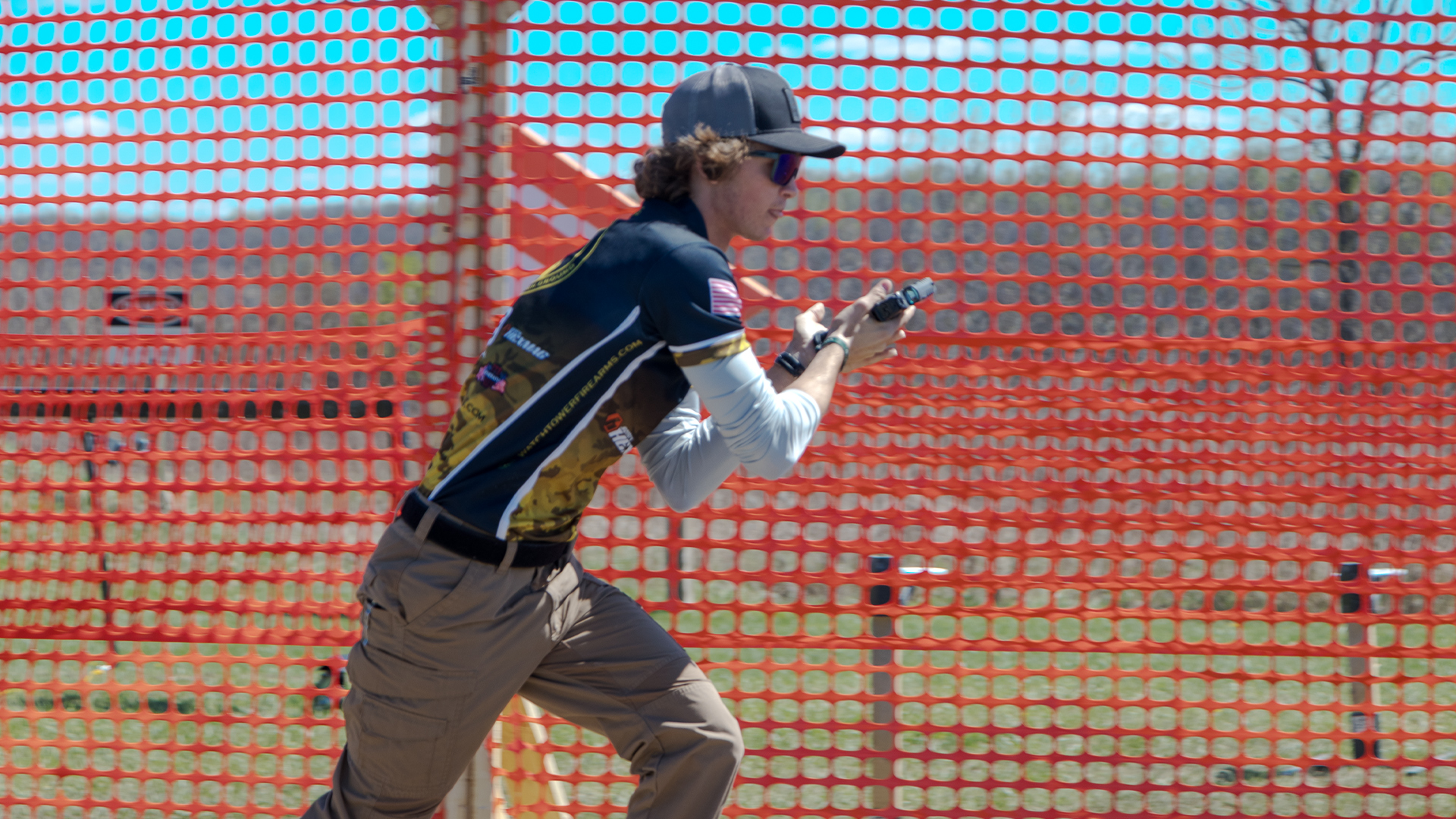
Competition is a great way to mingle with like-minded shooters and improve your own skills. However, matches are also complex and multifaceted scenarios well beyond shooting itself. There are rules, point scoring, stage planning, strategy and many other stimuli not experienced at a static firing line that all give new competitors a steep learning curve. But don’t fret, because as the famous saying goes, “Rome wasn’t built in a day.” In the meantime, here’s a starter’s primer highlighting some pointers and showcasing my experience in matches thus far.
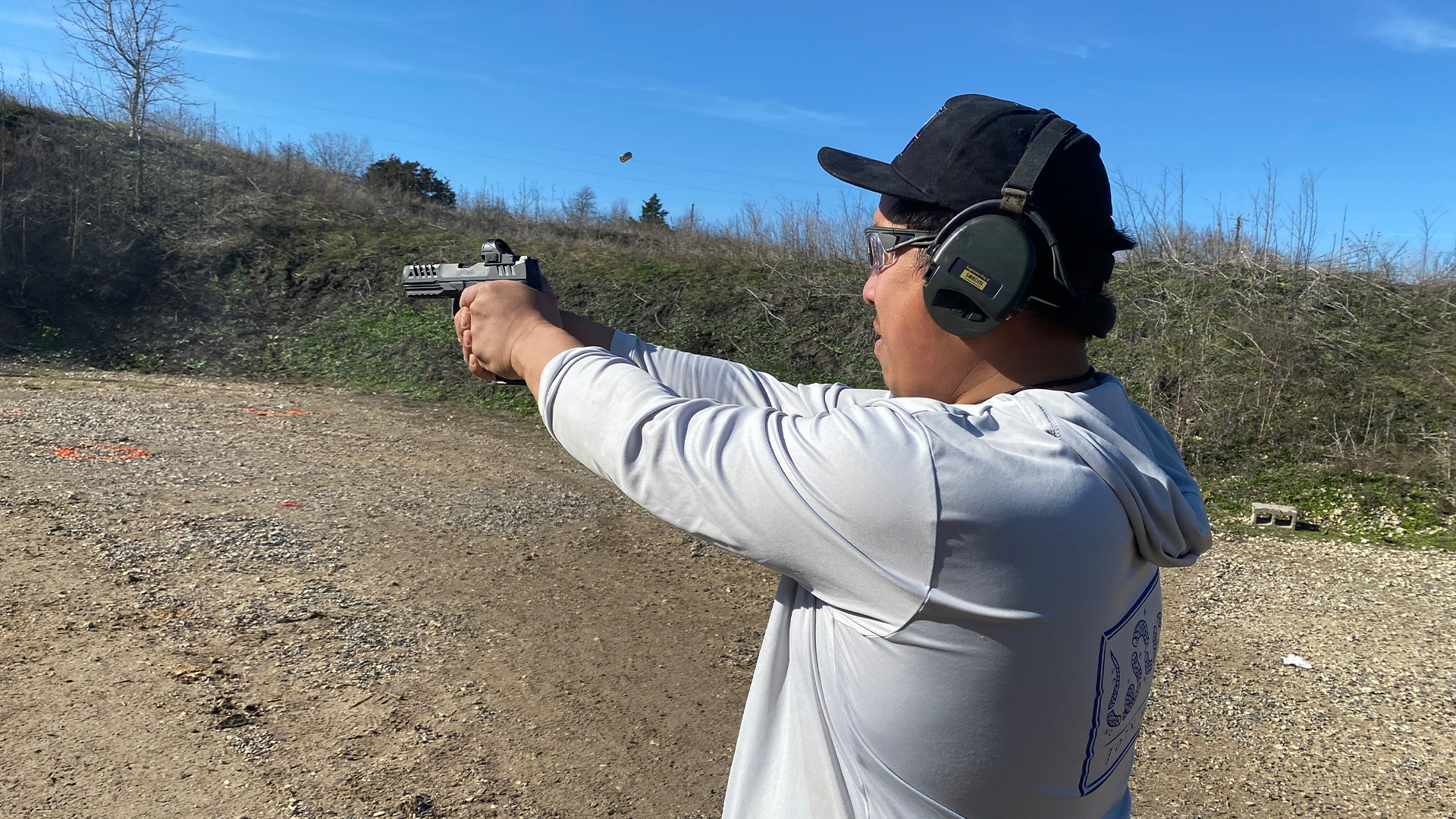
Safety First
In practically all action-shooting sports, the name of the game is scoring points (accuracy) in the least amount of time possible. This translates to moving quickly with loaded firearms around barriers, barricades, fault lines and shooting bays, which all must be done in the safest manner possible.
For new competitors, I cannot emphasize enough how critical muzzle awareness is. If this is your first time handling firearms outside of a static firing line, it can take some getting used to. It pays to be more careful and aware of your muzzle, even at the cost of “going faster”—especially the first few times. In fact, a solid goal for a beginner is to simply focus on finishing the match cleanly and safely without getting a disqualification (DQ). Since every shooting league takes firearms safety so seriously, the shooting sports are some of the safest around, but it all starts with the competitor and his or her gun-handling.
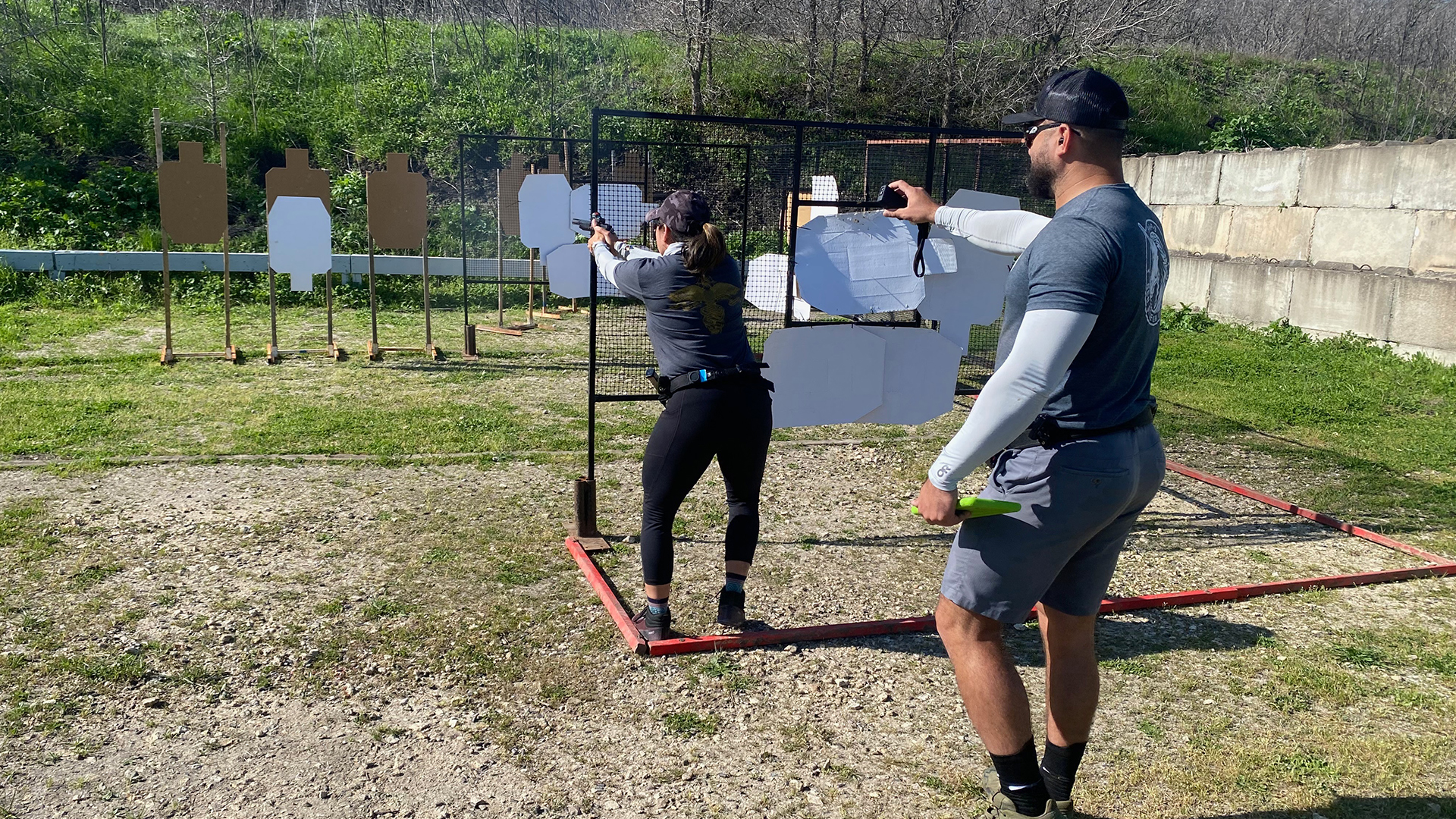
Every action-shooting match employs some form of the “180 Rule,” which means that the firearm’s muzzle cannot cross the virtual 180-degree line that is always present behind you. This line isn’t a fixed point in a stage, it moves with you as you go up or down range. To keep it simple, your gun’s muzzle must never be pointed behind you. In fact, even having the muzzle parallel to your 180-degree line is grounds for a DQ. I got my first DQ when I shot at a target array immediately to my right at two o’clock and facing me, but I’m left-handed. When I stopped to reload, my muzzle inadvertently crossed my 180 and earned me that DQ. The lesson here is to not only be aware of your muzzle, but also your body in relation to your muzzle. In that case, reloading the pistol the exact same way as a right-handed shooter would have been perfectly safe. Along with this imaginary boundary pinned on your back, the muzzle of your firearm should always stay parallel to the ground so that any discharged shots (whether accidental or intentional) find their way home into a berm. Having the muzzle pointed over any berms (which negates them as backstops) is also grounds for immediate disqualification, not to mention extremely dangerous. Errant stray shots are one of the single biggest threats to a shooting range, in addition to gun-control advocates and real-estate developers.
Accidentally dropping or losing control of a handgun is another way to get immediately disqualified. Sometimes in the heat of the moment, competitors move so quickly that they lose their footing. If this happens to you, remember to keep your finger off the trigger and the gun securely gripped and pointed in a safe direction as you fall. How you land is the difference between getting disqualified (or worse) and being able to get back up and resuming shooting your stage. However, if you lose control of your gun and it starts falling to the ground, do not attempt to catch it before it hits the deck. Doing so is dangerous and poses more of a risk than simply letting the gun fall. To help prevent slipping and falling, wearing footwear with grippy soles and tread appropriate for the competition venue is a great idea.
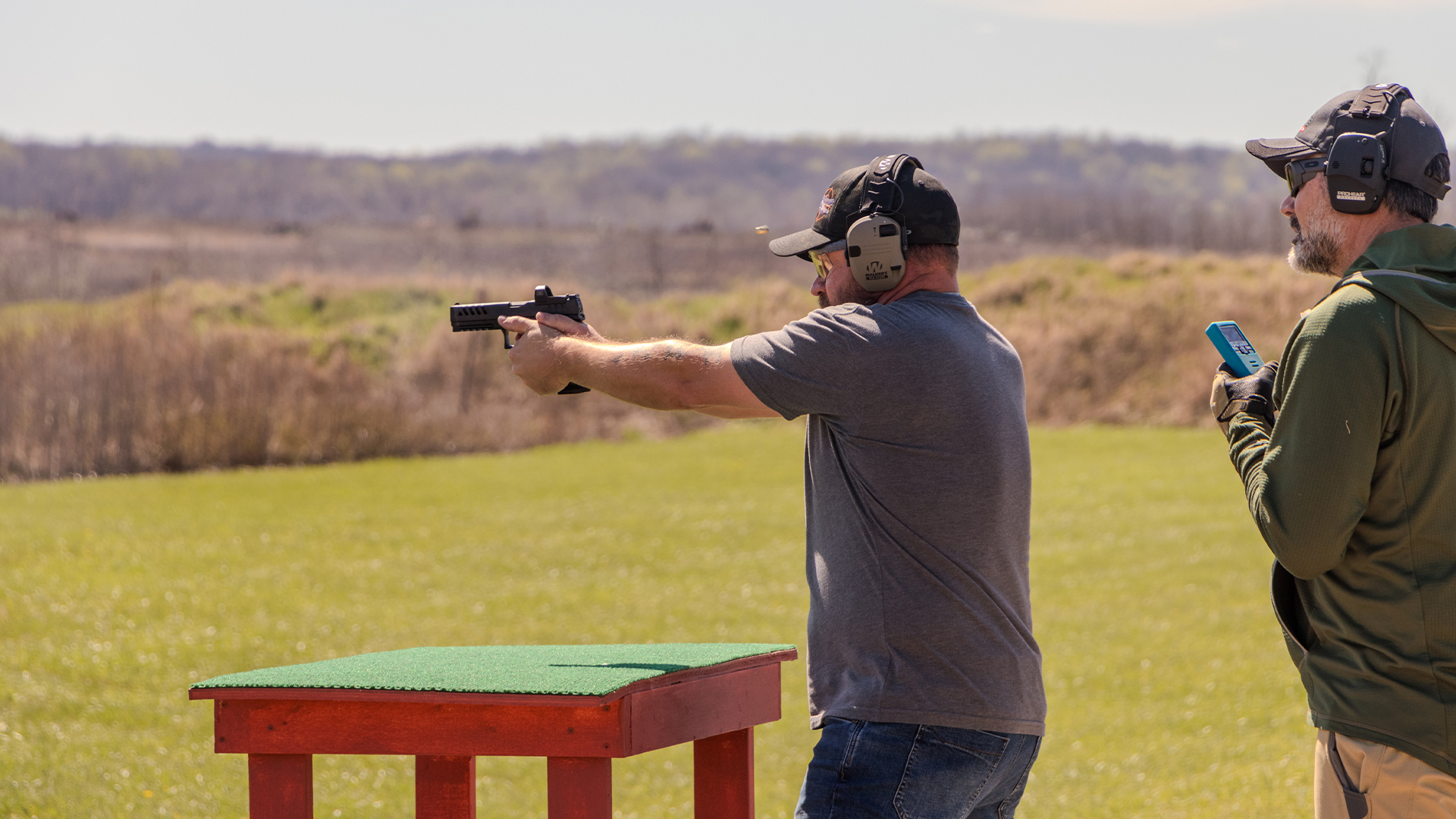
My final point about gun safety at a competition—always pay attention to the Range Officer’s commands. Never grab or load a firearm until they give the okay to do so. If you can’t clearly hear commands, don’t hesitate to speak up and ask them to repeat them back to you. When holstering a loaded firearm, be careful and deliberate with that action, too. Remember, the contest is about who can shoot and clear the stage in the least amount of time possible, not who can holster or reholster their gun the quickest. Unauthorized firearms handling is another sure way to get dismissed from a match.
Check Your Ego
Performing well in action-shooting matches is a true multi-disciplinary effort requiring coordination, gun-handling, planning and movement. Competitors at the highest level of the game fire tens of thousands of rounds every season practicing, so for your first match do not worry too much about winning or your score, especially at the expense of your enjoyment. I speak from experience here.
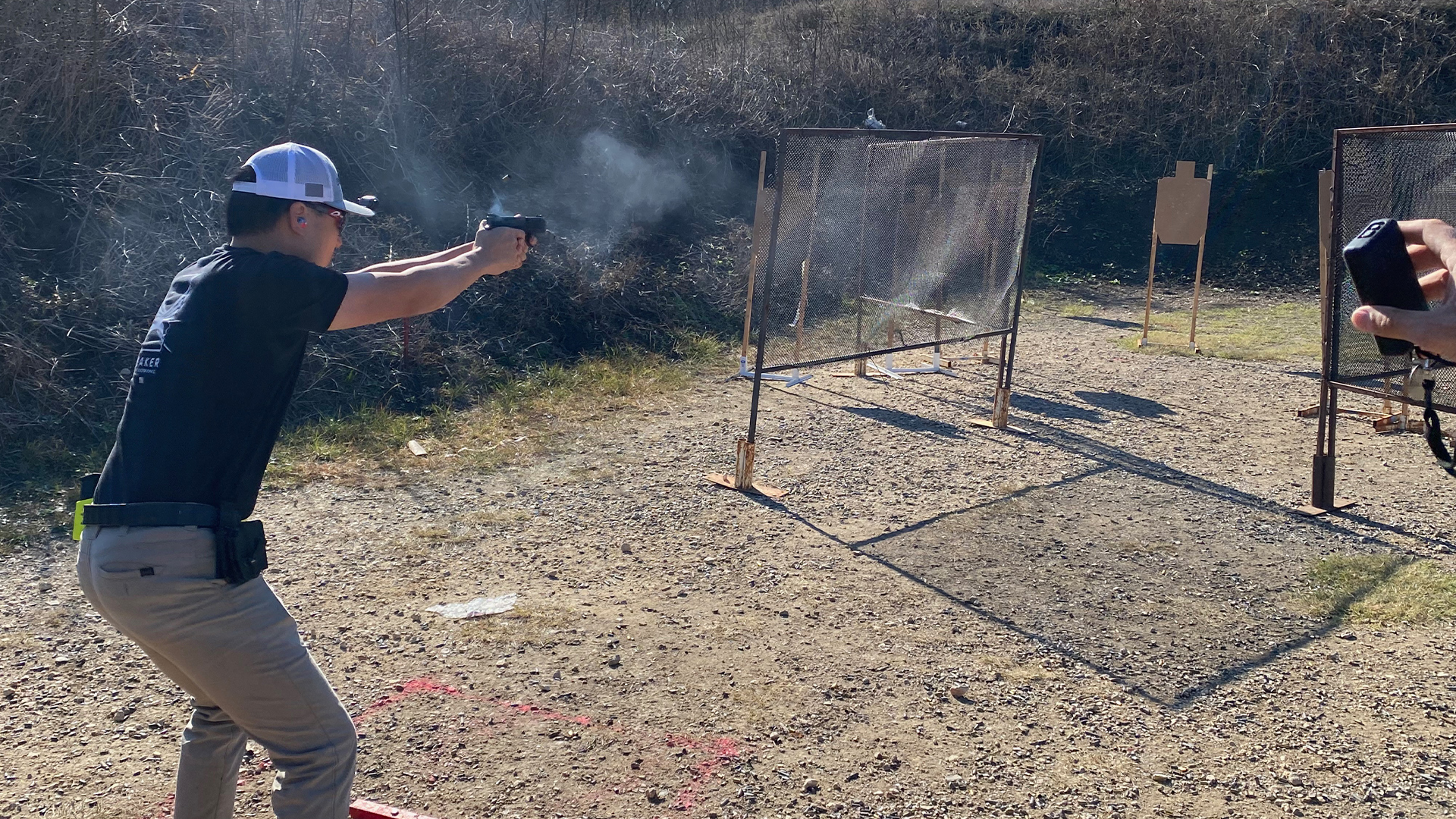
Since you’re new, chances are good you’ll be making honest mistakes at your first match. Like many people, you might feel selfconscious about your performance, especially in front of your squadmates. It’s a good idea to let that go, too, because similar to focusing on achieving victory, this will also drain you and rob your joy. Plus, no one else really cares all that much. Everyone started somewhere, and even the best people at the match can tell you stories about all the times they messed up. Most important is handling your firearms safely. People will be more interested in that, as opposed to how well you score. And there’s also something to be said for your ability to be a team player, which leads me to my next point: good sportsmanship.
Be A Good Squadmate
Nearly every competitive shooting activity is led and run by volunteers. If it wasn’t for their coordination, organization and hard work, weekend matches wouldn’t exist. In addition to being safe with your firearm, another important thing you should do as a new shooter is to help your squadmates out. The best way to do this is to help reset stages and paste targets after the previous shooter is finished and their score has been recorded. Being proactive about resetting a stage not only allows the whole squad to flow through the stage and shoot efficiently, but it’s also part of good sportsmanship in these games.
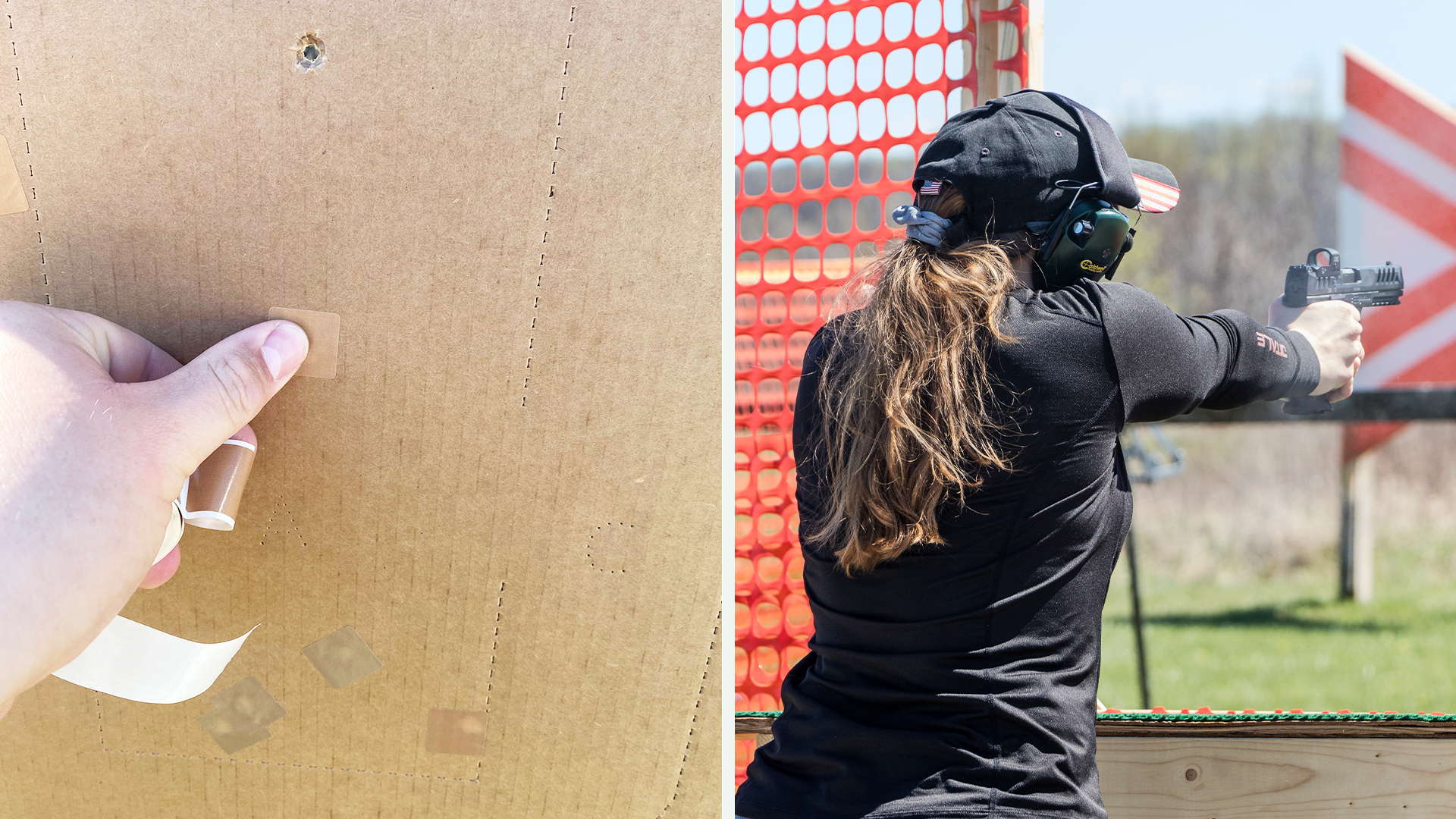
Whether someone is stepping up to be the Range Officer, keeping score or resetting targets, they are extending you a courtesy and it’s best to reciprocate. There is nothing as tedious as having to start over after the timer goes off and you begin shooting only to find that half the stage hasn’t had its targets pasted or steel reset. Likewise, after the last stage of the day is over, it’s a good idea to help tear down and put everything away. When everyone steps in, it never takes long. If you decide that shooting matches is for you and plan to return, arriving early to help build stages also benefits everyone. Also, if you keep coming back to shoot more matches, you should learn how to run the tablet for score or look into becoming a Range Officer.
Your Gear Is Fine
As a new competitor, don’t fret too much about gear. Outside of specialized events such as multi-gun or PRS, guns and gear don’t matter too much. For example, in disciplines like IDPA, IPSC or USPSA, most off-the-shelf handguns will qualify for either a basic “production” or “red-dot optics/carry optics” division. Chances are that the guns you already own will work just fine. Any pistol chambered in 9 mm with at least a 10-round capacity will suffice. If your gun sports a modern “tactical” compensator, be aware that it may force you to shoot under an “open” division. Most of these gun games do not require too many magazines. Many competitors start with one fully loaded mag in their gun and wear three on their belt. In my experience at normal “weekend” matches, you’ll reload once or twice. The third magazine is good to have in case you accidentally drop one of the other magazines or need to clear a jam. Therefore, bringing at least four magazines is a good idea.
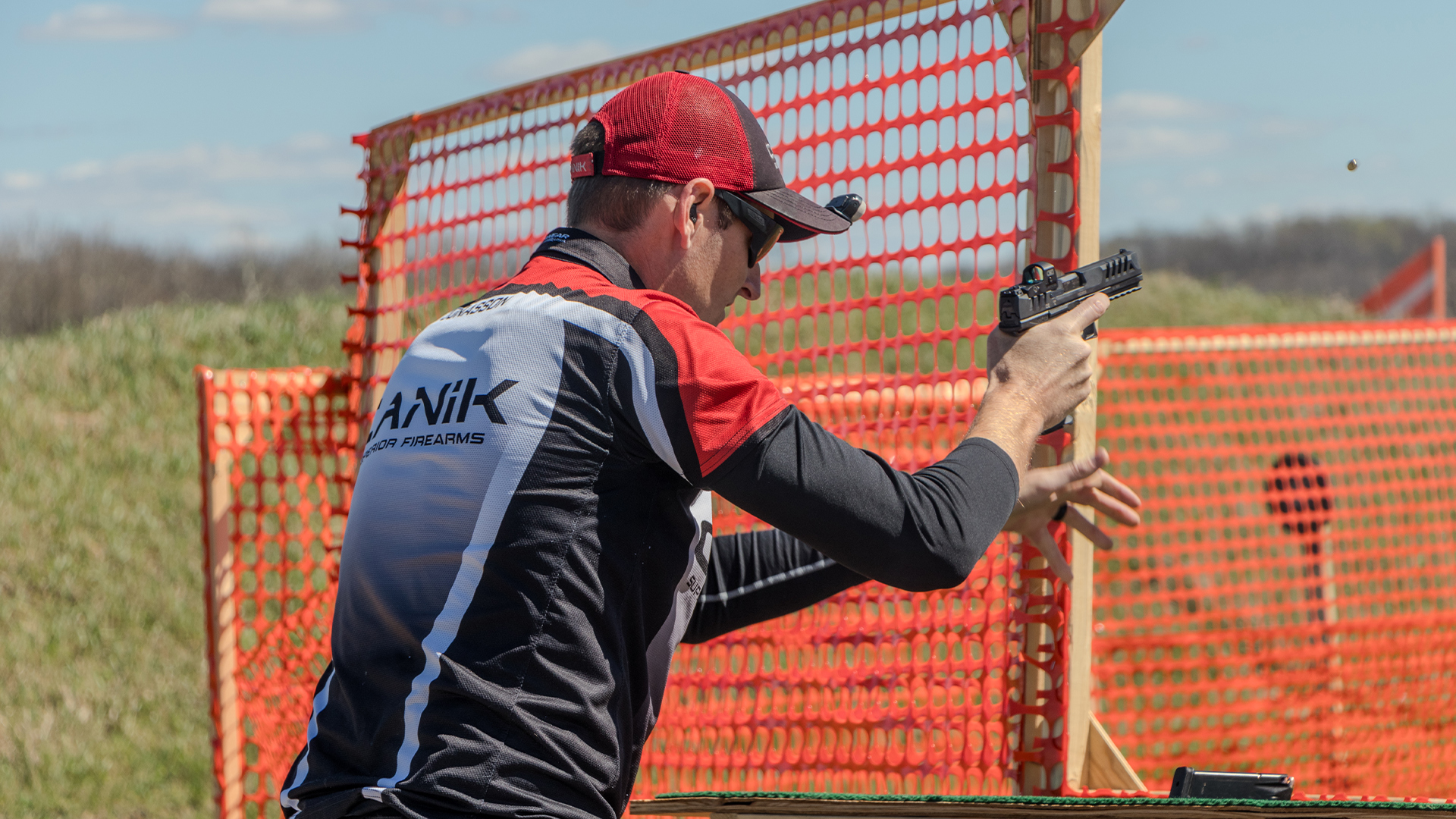
Unless you already have a decent outside-the- waistband holster, gun belt and at least three mag carriers, you probably won’t need to invest in much, especially for your first few matches. Otherwise, a basic competition belt and plastic holster will serve you fine. Over the last few years, both USPSA and IDPA have allowed competitors to use AIWB (appendix inside the waistband holsters) and draw from concealment. If you’re an AIWB carrier who is safe and comfortable with your gear, this could also be a viable solution. Shooting with the same type of ammunition you use to practice or train with your firearms will suffice. The most common type of cartridge I see at matches is standard 9 mm 115-grain factory full-metal jacket loads.
Closing Tips
To be successful at your first match, taking heed of safety, managing your expectations (ego), being a good squadmate and understanding your gear are all good points to keep in mind.
Here are some closing tips that I’ve learned from others and from my own competition experience.
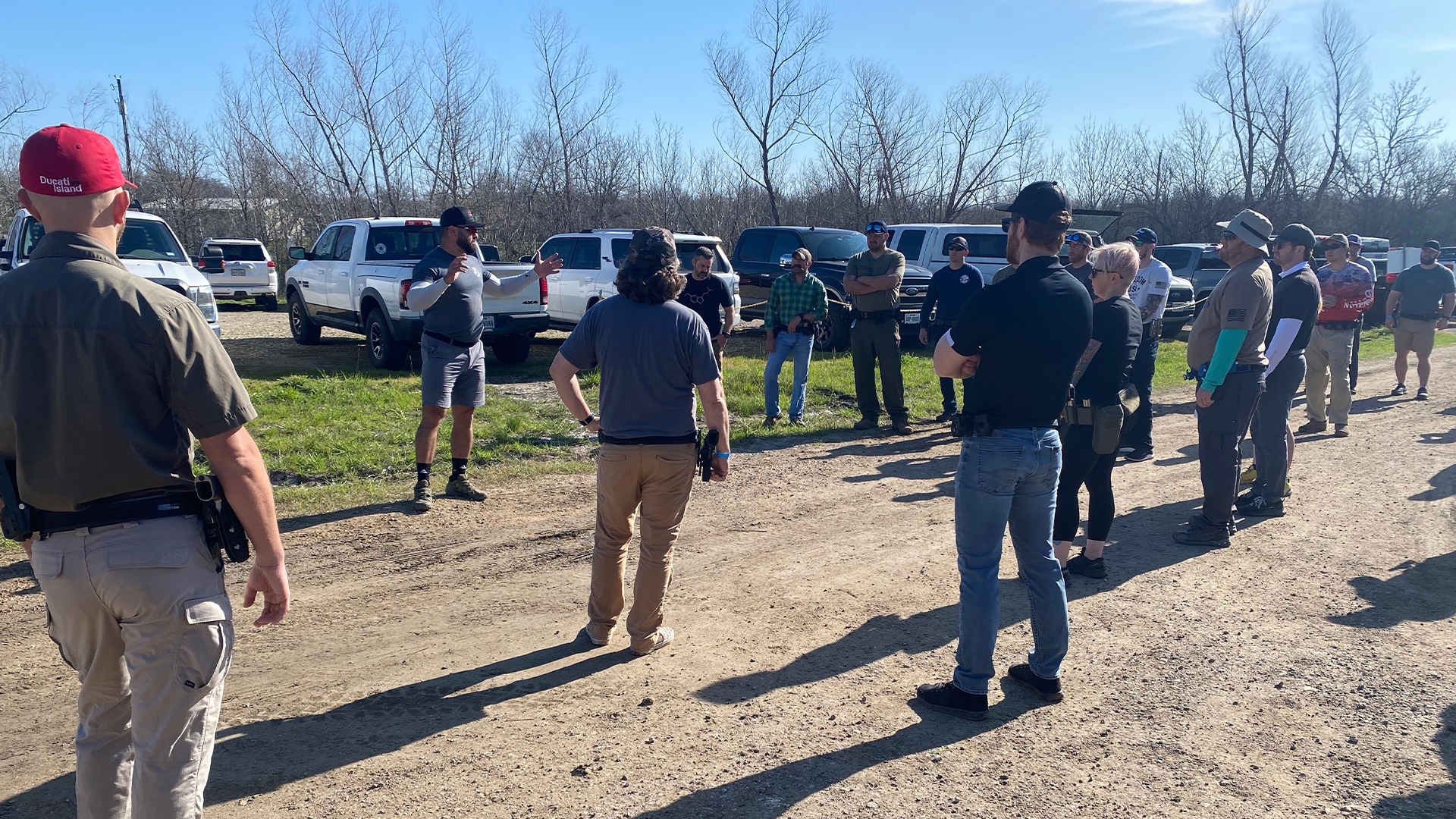
Mind the sun. Sunburn is the most common type of injury you’re prone to get at a shooting match. I suggest looking into “sun hoodies.”
Stage briefing. Be sure to pay attention because sometimes they have special rules or considerations.
Don’t hesitate to ask for help. Most other competitors are happy to help new shooters out and do not view them as a burden. This is where being a good squadmate is also helpful, as it’s a two-way street.
Be respectful. If someone is about to start their turn (“on-deck” or “in-the-hole”), avoid interrupting them. This is when competitors shift into focus and start finalizing their competition stage plan and concentrate on their performance.
Don’t slide-lock. Unless the stage or match rules say so, do not let your pistol go to slide-lock. It takes longer to reload and costs you precious time.
Use downtime wisely. Many shooting leagues give the squad about five to 10 minutes to walk through the stage and formulate a plan of attack. This is a great time to formulate a plan. When the timer goes off, you may suddenly feel dumber, so I recommend sticking to your stage plan instead of trying to recreate it on the fly. Every time I do this it almost always backfires.
Watch experienced shooters. If your squad has seasoned competitors, it’s not a bad idea to watch them move through the stage to help you come up with your own plan.
Remember to have fun. Manage your expectations and ego while prioritizing safety. Again, for the new shooter getting through the entire match without any DQs or penalties is a good goal.
Protect your hands. Don’t forget to bring a pair of solid work gloves.
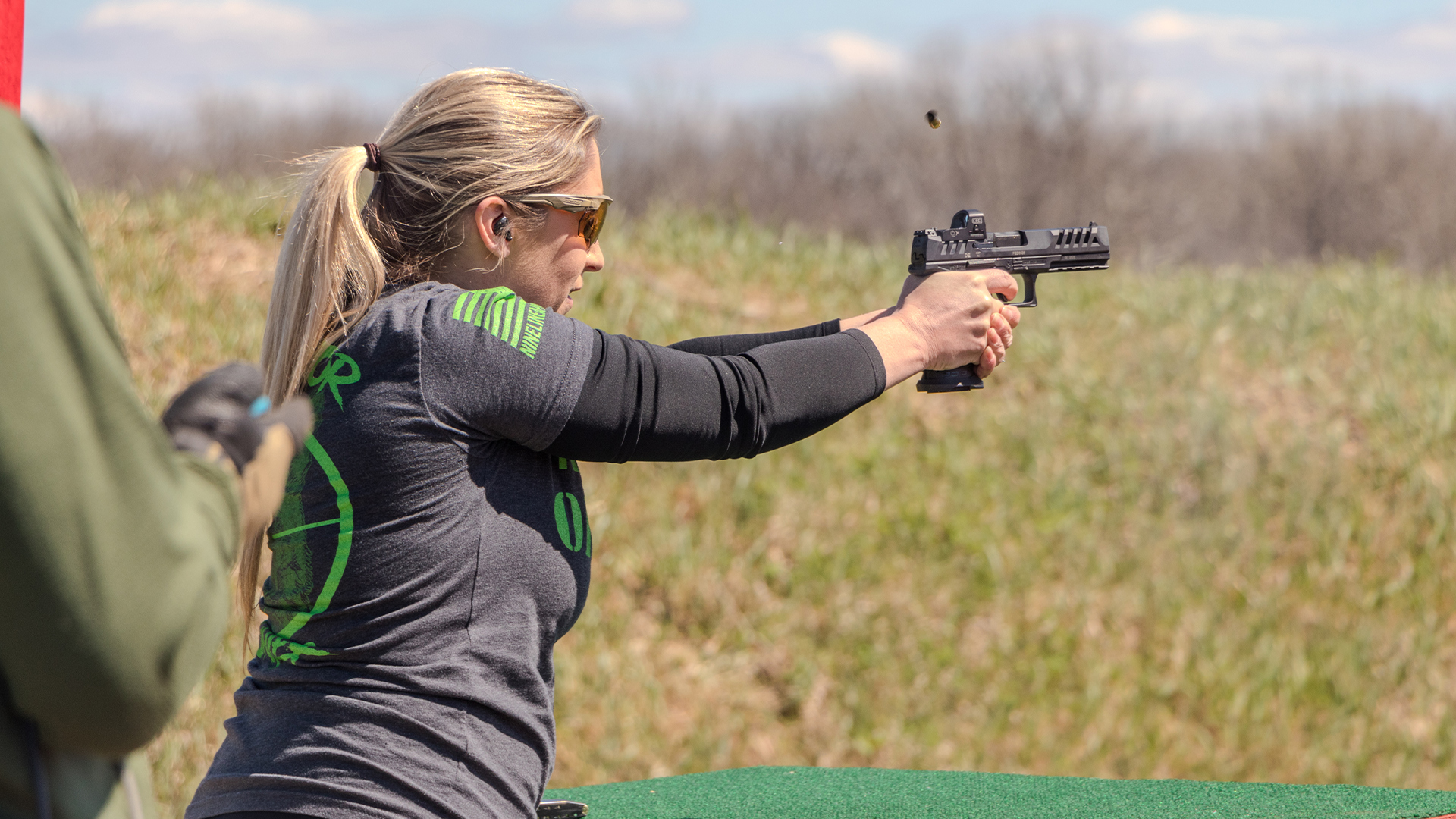
The advice outlined here will help you build a solid foundation for success in action-shooting sports. The rest is up to you.













